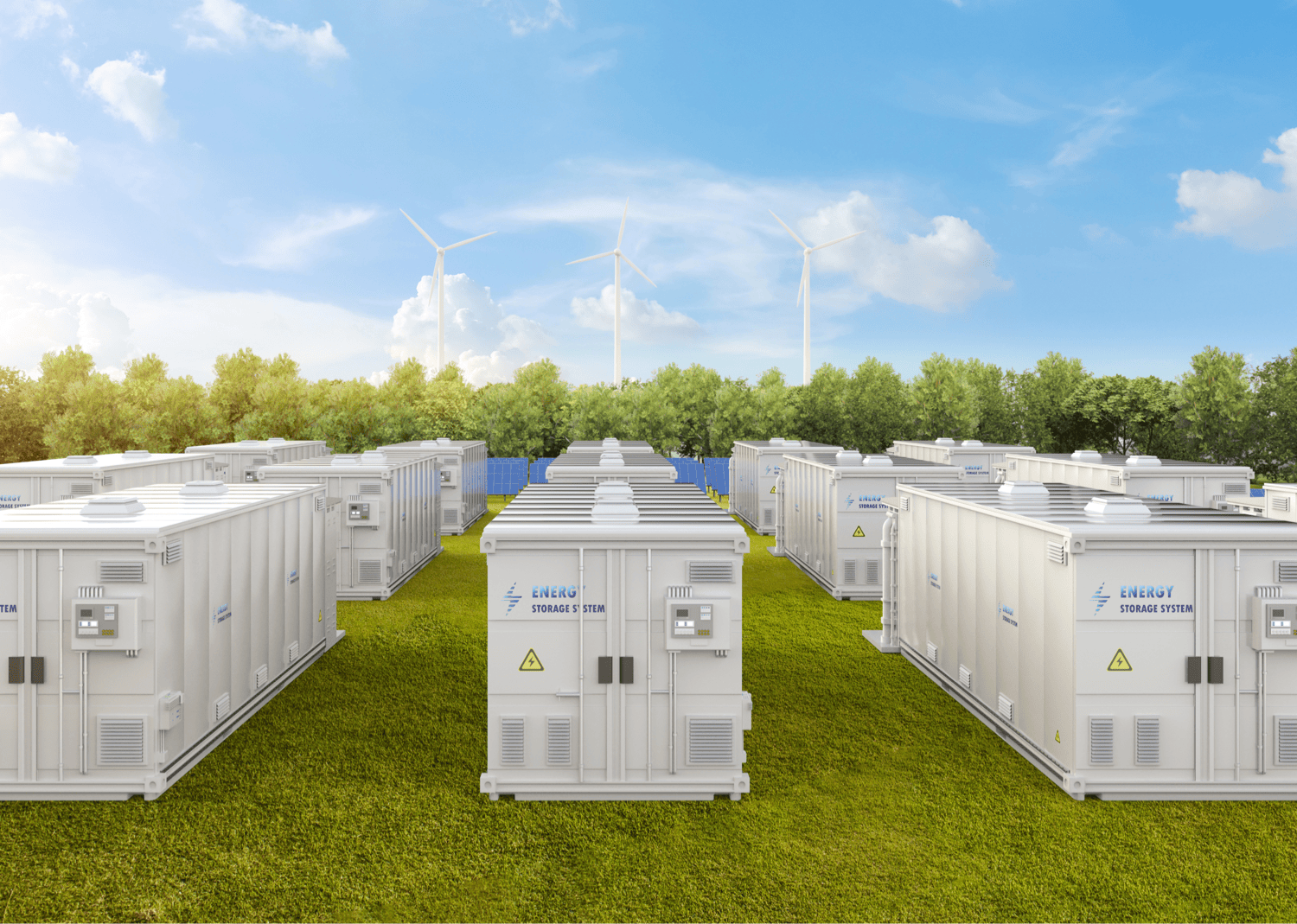From EVs to Grid Stability: The Rise of BESS in a Renewable World

Battery Energy Storage Systems (BESS) are at the heart of this revolution. Utility-scale installations, often housed in shipping container-sized units, store vast amounts of renewable energy and release it when the grid needs it most.
These systems are already proving their worth in real-world scenarios, from keeping Texas’ grid stable during record heat to powering California with up to 30% of electricity during peak hours. California now leads the U.S. with 8.6 gigawatts of battery capacity, more than double Texas and the largest outside China.
The numbers are striking. In the U.S. last year, utility-scale battery storage grew 66%, while EV sales grew just 7.3% (EIA, Cox Automotive). Last year, global demand for EV lithium-ion batteries was recorded at over 950 gigawatt-hours, and this year it is on track to exceed 1 terawatt-hour – enough to power 12.5 million EVs. Yet as EV adoption temporarily slows, stationary energy storage is surging ahead, with governments and grid operators recognising that batteries are no longer optional, but vital to energy resilience.
From EVs to Grid Stability: Two Sides of the Same Coin
While EV and stationary storage share chemistries like nickel manganese cobalt (NMC) and lithium iron phosphate (LFP), their use cases diverge. EV batteries prioritise energy density and performance, while BESS prioritises durability and predictability, designed to fully charge and discharge daily for up to 20 years. This difference makes recycling both types of batteries equally urgent but uniquely challenging.
At Recyclus, we recognised early that the growth of BESS would mirror that of EVs. Since July 2023, our industrial-scale lithium-ion recycling plant has been fully operational, successfully processing a wide range of chemistries and formats, including end-of-life, damaged, and defective BESS units.
Unlike untested concepts, Recyclus has proven recycling technologies that are already in place, recovering valuable black mass for reuse in the supply chain. Black mass, the critical output from recycling, contains high-value materials such as lithium, cobalt, nickel, and manganese, which are essential for producing new batteries and reducing reliance on virgin mining. With long-term offtake agreements secured, we’re ensuring a direct route back into manufacturing.
Why Recycling BESS Matters
The rise of stationary storage brings new pressures. A single utility-scale BESS installation can consist of hundreds of shipping-container units, each storing the equivalent of 50 to 100 EV batteries. As these systems age, safe and efficient recycling is critical, not only to reduce fire risk, but to ensure that strategic materials are not lost.
Without advanced recycling, the global reliance on critical mineral supply chains (90% of LFP production, for example, remains concentrated in China) will only deepen. Recycling offers a proven pathway to reduce dependence on raw extraction, cut emissions, and secure domestic supply chains.
Building Resilience for the Future
Real-world examples highlight just how essential BESS already is. In Texas, new solar and battery capacity slashed grid emergency risks from 16% to less than 1% in a single year (ERCOT). In California, batteries have enabled the state to achieve 100% clean energy on 91% of days through May, at least for some portion of the day (CEC). Globally, projects like Tesla’s solar-powered, off-grid Supercharger stations in California are redefining what energy independence looks like.
But with growth comes responsibility. These systems, capable of storing 39 megawatt-hours in a single installation, will eventually reach end-of-life. The industry cannot afford to repeat the mistakes of the fossil fuel era, trading one dependency for another.
Conclusion
Lithium-ion batteries are vital to our future. They are transforming energy grids, stabilising renewable supply, and powering new industries from AI data centres to EV fleets. But this transformation will only be sustainable if recycling solutions keep pace.
Recyclus Group is proud to be a key driver of this transition, operating at an industrial scale with proven results. As BESS continues to grow at record rates, we are committed to ensuring that the energy revolution is not just about storage and supply, but about true sustainability from beginning to end.
